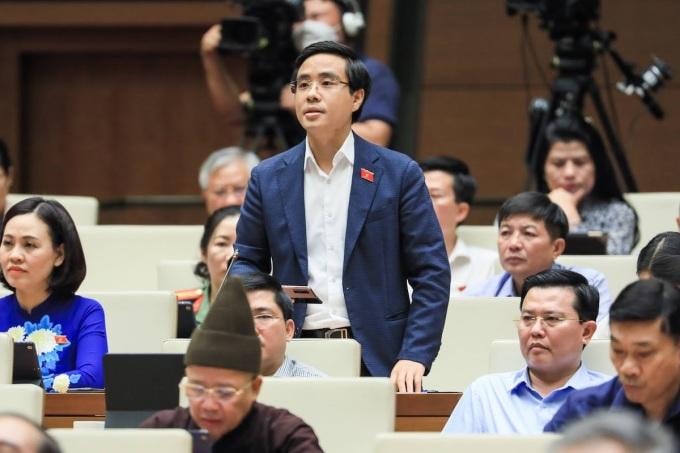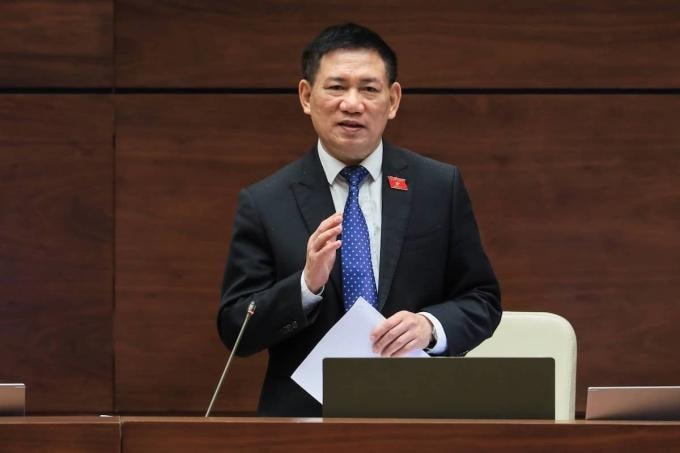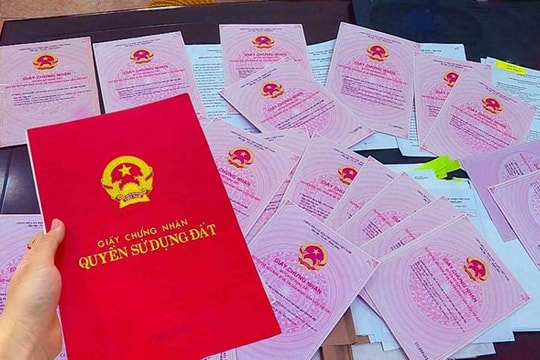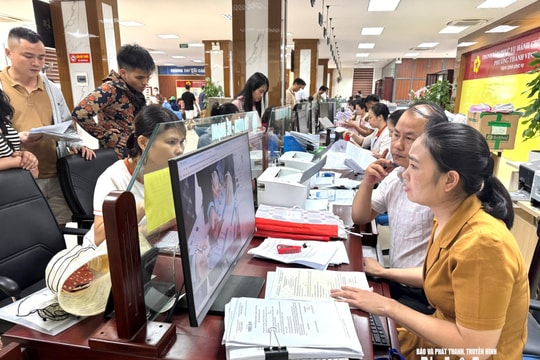Enterprise equitization 'stuck' because of land
Finance Minister Ho Duc Phoc assessed that the core reason for slow equitization is due to problems in changing land use purposes and losses that often occur here.
On the morning of June 8, during the question-and-answer session at the 3rd session of the 15th National Assembly, many National Assembly deputies questioned Minister of Finance Ho Duc Phoc on the issue of land and capital loss in equitization and divestment of state capital.
Delegate Nguyen Thi Le (HCMC) asked the Minister how to identify and resolve the issue of real estate whenequitizationslow, difficult, prolonged due to complicated land law
Delegates Nguyen Thanh Cong (Ninh Binh) and Nguyen Minh Son (Tien Giang) also raised the issue of difficulties in arranging and handling land of State-owned enterprises with large land areas in many localities. Delegates wondered if this was the main cause of difficulties in divestment and equitization.
 |
| Mr. Nguyen Thanh Cong, delegation of Ninh Binh province.Photo: Hoang Phong |
Responding, Minister of Finance Ho Duc Phoc admitted: "The losses in equitization and divestment of enterprises recently were mainly from land, typically the cases at Saigon Agricultural Corporation, Tan Thuan Corporation...".
He analyzed that the core problem in equitization is changing land use purposes.
According to current regulations, thechange of land use purposeapproved by the provincial or municipal People's Committee. So when leasing land, the enterprise will pay the money once. When converting to a joint stock company, they will ask the provincial or municipal People's Committee to approve the change of land use purpose again. At that time, the land price is recalculated, but because it is not close to the market price, it causes losses in the stage of changing the land use purpose from the State to the private sector.
In addition, according to Decree 32 of the Government, enterprise assets attached to annual leased land are not included in the enterprise value, but annual land payment is included in the enterprise value. Mr. Phoc said "this is a loophole that needs to be addressed to avoid land loss when equitizing enterprises".
Recently, the slow equitization is also due to this stage, according to the head of the Finance sector. In 2021, only 18 enterprises were divested, 4 units were equitized, total budget revenue was more than 4,200 billion VND.
 |
| Minister of Finance Ho Duc Phoc answered questions on the morning of June 8.Photo: Hoang Phong |
Mr. Ho Duc PhucThe Ministry of Finance has consulted many opinions to amend land regulations in the process of approving the equitization plan.
Accordingly, it will be regulated that land leased from State-owned enterprises for production and business purposes, when transferred to joint-stock enterprises, private individuals must also use it for this purpose. If they do not have the need to use it, they will return it, and the State will then pay for the assets on the land to the enterprise, and organize an auction to collect money for the budget.
Mr. Phuc said that this is beneficial in promoting the economic capacity, meaning that equitized state-owned enterprises will increase production capacity, not after equitization, workers will be laid off, the enterprise will be dissolved, then the land will be sold, and the difference in land rent will be converted to residential land.
"Differential land rent will not fall into the pockets of businesses, but will be regulated by the State," said the head of the Finance sector.
Assessing that the above answer was not close to the delegate's question, National Assembly Chairman Vuong Dinh Hue reminded the Minister of Finance to clarify his viewpoint on whether it is reasonable to include the real estate arrangement process in the equitization process.
Minister Phuc replied that attaching the real estate arrangement process to the equitization process is "also reasonable", because real estate is State property, so it must be arranged before transferring.
In addition, the current regulations on determining commercial advantages, including one-time land rental payments in enterprise value... are considered unreasonable by many experts. Because there is currently no accurate evaluation criteria for assessing commercial advantages. If included in enterprise value, "today it may be high, tomorrow it may be low". Therefore, he said he would amend this regulation to avoid exploitation.






.jpg)

